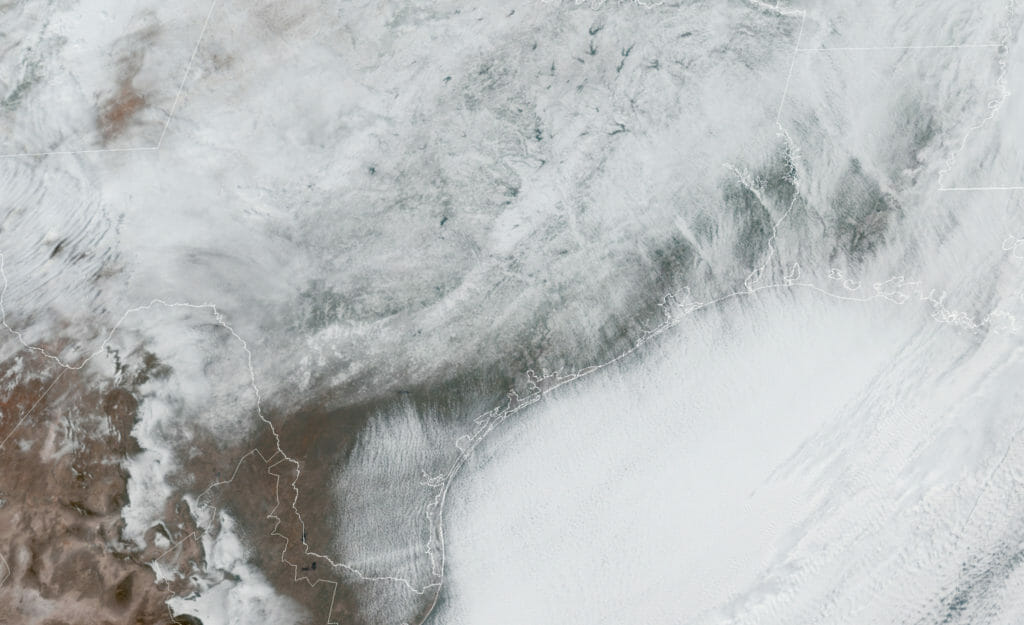As I write, Texas is slowly emerging from being pummeled by a deadly winter storm that left it in a state of mayhem. Millions lost access to heat and power during the storm, while a cascading series of events have led to compromised water supplies, an emerging healthcare crisis, and a growing death toll.
It’s easy to attribute the chaos to escalating threats associated with climate change. And indeed the climate blame-game has already begun around the storm fall-out in Texas.
Yet to reduce what we’re seeing to climate change alone would be short-sighted.
Certainly, there are in all probability links between the severity of the storm and human-driven global warming (although attributing one-off climate events to specific causes is always tricky). And it’s almost irresistibly tempting to adopt a narrative of dire consequences resulting from unheeded early warnings—especially if you are looking for a stick to beat climate-obstructionists with.
But to focus solely on climate change would sidestep the reality that what is unfolding is a result of a highly complex intertwining of politics, power, human behavior, socioeconomics, and the use and abuse of science and technology.
To make sense of what many are currently experiencing—and to learn how to do better in the future—we need an integrated understanding of the interplay between society, technology and the future that extends far beyond climate science.
We also need innovative ways of thinking about our relationship with the future that transcend conventional disciplines and established areas of expertise, and intertwine understanding and insights in ways that provide new perspectives on increasingly complex challenges.
And of course, we need to better-understand how science intersects with social values; how technology intertwines with decision-making; and how our humanity, in all its glorious complexity and diversity, affects a shifting landscape of pathways toward the futures we aspire to.
Only by sloughing off the chains of conventional thinking and seeing beyond the constraints of stovepiped expertise will be able to rise to the challenge of building futures that are more equitable, sustainable, and full of promise in a world that is increasingly complex and interconnected.
This, of course, is hard-wired into the aspirations of a college that’s dedicated to global futures, in a university that’s committed to transforming society for the better—and for good reason. If we’re to thrive in a future that’s characterized by increasingly tight coupling between our actions and their consequences—whether in the physical world, in the digital world that’s increasingly a part of our lives, or the social and political worlds we inhabit—we need people who can make connections that aren’t obvious, that haven’t been made before, and that open up new possibilities.
Hopefully, things will get back to some semblance of normality as quickly as possible in Texas. But the lingering lesson is that, unless we get better at navigating the complex futures we’re creating, we’re likely to see catastrophic failures like this appearing with increasing frequency, even if we do get to grips with climate change.
